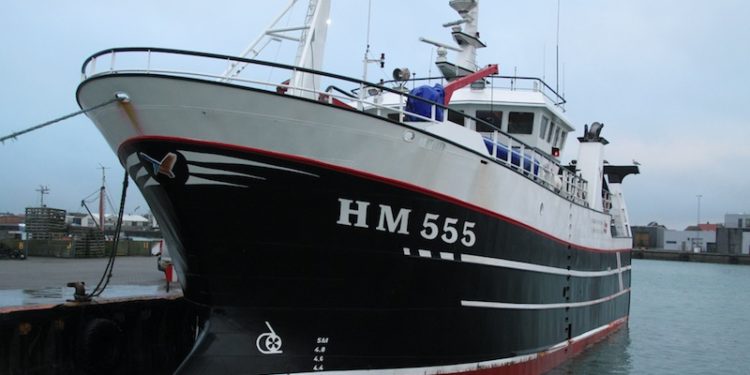European fishing industry representatives have told DG Mare at a meeting that workable measures that can realistically be applied need to be adopted – as has not been the case with the Landing Obligation.
DG MARE director general Aguiar Machado yesterday met Europêche representatives to discuss developments at both European and international levels. While both welcome the results achieved towards sustainable fisheries, the industry is concerned about measures such as the landing obligation, and Europêche has requested efforts and diplomatic pressure for more fisheries agreements with third countries which must be linked to trade and regional policies.
Both sides agreed that Sustainable Fisheries Partnership Agreements (SFPAs) are the most transparent and mutually beneficial fisheries agreements in the world. Europeêche has requested diplomatic support at the highest level to renew agreements with Gabon, Guinea-Bissau, Equatorial Guinea and Morocco, among others, on fair terms, among others, stressing the need to establish a coherent network of SFPAs to secure fishing access.
Europêche expressed its frustration over the latest RFMO negotiations that took place in the Atlantic and Mediterranean (ICCAT) as well as in the Indian Ocean Tuna Commission (IOTC).
According to Europêche, the EU is becoming increasingly isolated and it is becoming extremely difficult for its officials to defend the interests of the EU fishing sector in international waters. The outcome of ICCAT negotiations was disappointing since the sector expected greater quotas for bluefin tuna and the adoption of a management plan in view of the positive scientific assessment that reported the full recovery of this emblematic species.
‘In the Indian Ocean, a coalition of third countries are trying to twist the allocation criteria so as to expropriate the historical rights of the EU long-distance fleet which have been investing and contributing in a decisive manner to the economic development of coastal communities in the Western Indian Ocean’ said Europêche president Javier Garat.
‘If the position from this coalition is adopted, it is clear that the fishing resources allocated to coastal states that are not able to exploit them, will end up in the hands of the highest bidder such as the fleets from Asian countries which have no regard for the sustainability of the fishing populations or local communities, as demonstrated in Western Africa.’
Europêche also stressed the importance of the relations between the EU and Norway, but took the opportunity to remind DG Mare of the importance of defending the rights of Member States in Svalbard, stating that the situation still remains overly favourable to Norway, particularly to the detriment of the EU crabbing fleet.
On a different topic, fishing representatives agreed with the EC on the need to simplify the framework established back in 2009 for the control of fishing activities. More specifically, according to the sector, this legislative revision should translate into a harmonised sanction system, cost- effective monitoring systems for under 12 meter vessels, inclusion of recreational fisheries, reduction of red tape and strengthening the role of the European Fisheries Control Agency.
Concerns were also raised regarding the upcoming trilogue negotiations to adopt the new regulation for the conservation of fishery resources which regulates how, where and when fishermen may fish.
Europêche has its own severe reservations about the proposal to ban pulse fishing which it says was based on emotions and not science.
‘Demanding larger mesh sizes for demersal vessels, coupled with more environmental standards, stringent objectives, and unchanged catch composition rules will certainly condemn the sector to extinction,’ Javier Garat said.
‘The industry needs maximum flexibility in order to comply with the landing obligation and achieving MSY levels by 2020. Under a full documentation regime, fishermen should be allowed for more flexibility.’
In light of the EC’s upcoming proposals for Multi-Annual Plans (MAPs) for the management of demersal fisheries in the Western Atlantic and Western Mediterranean, the industry’s representatives requested tailor- made and workable rules to adequately implement the CFP on a regional basis.
‘We appreciate the readiness from the EC to overcome the multiple problems faced by the European fishing industry,’ Javier Garat said.
‘We are at a crucial moment, at which the decisions taken by the Commission will shape and influence the future of fisheries. 2019 will be a landmark year defined by the full entry into force of the landing obligation, Brexit, and MSY levels for all commercial stocks. Therefore, we are asking for full support from the European Institutions to adapt to the new fisheries scenarios and to continue operating both in European and international waters. It cannot be forgotten that we are dealing with the livelihood and safety of the fishermen and their families.’









